 ———-
———-
Hellraisers Journal – Sunday January 4, 1920
Mary Heaton Vorse Reports from Front Lines of Great Steel Strike
From The Liberator of January 1920:
The Steel Strike
By Mary Heaton Vorse
—–
AT the beginning of the fourth month of the strike, at a moment when the newspapers have definitely decided that there is no strike, the strike still cripples production of steel 50 per cent. These are figures given by the steel companies to the financial columns of the daily press. One would think that the strike would have been definitely battered down and the account closed for good in at least a few towns.
One would think that the might of the steel companies, backed by the press, reinforced by the judiciary, local authorities and police, and self-appointed “citizens’ committees,” would have finished this obstinate strike. One would think it would have been kicked out, smothered out, stifled out, bullied out, brow-beaten out, stabbed out, scabbed out, but here they are hanging on in the face of cold weather, in the face of abuse and intimidation, in the face of arrests, in the face of mob violence-and these are dark days too.
These are days when the little striking communities are steeped in doubt, when the bosses go around to the women and plead with them almost tearfully to get their husbands to go back to work before their jobs are lost. These are the days when in these isolated places every power that the companies know is brought to bear upon the strikers to make them believe that they and they alone are hanging on, that the strike is over everywhere else and that this special town will be the goat.
People talk of the steel strike as if it were one single thing. In point of fact, there are 50 steel strikes. Literally there are 50 towns and communities where there to-day exists a strike. The communication between these towns is the slenderest, the mills and factories which this strike affects line the banks of a dozen rivers. The strike is scattered through a half a dozen states.
This is something new in the history of strikes-50 towns acting together. Pueblo acting in concert with Gary; Birmingham, Alabama, keeping step with Rankin and Braddock, Pennsylvania. How did it happen that these people; so slenderly organized, separated by distance, separated by language, should have acted together and have continued to act together?
Some of the men have scarcely ever heard a speaker in their own language. Some of the men are striking in communities where no meetings are allowed. Sitting at home, staying out, starving, suffering persecution, suffering the torture of doubt, suffering the pain of isolation, without strike discipline and without strike benefits, they hold on. What keeps them together?

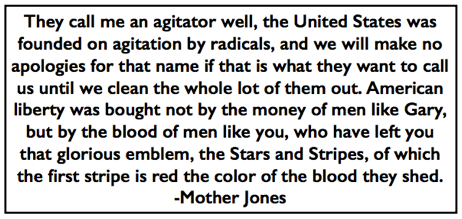 ———-
———-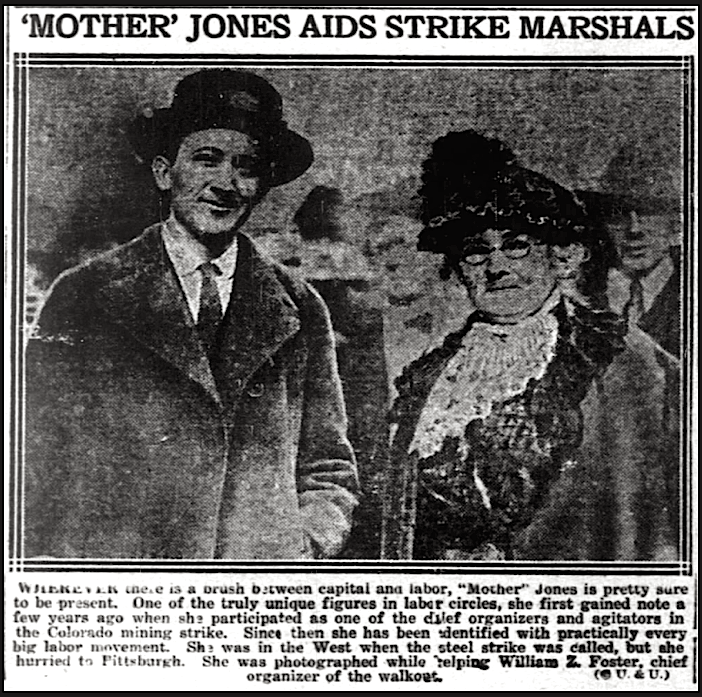
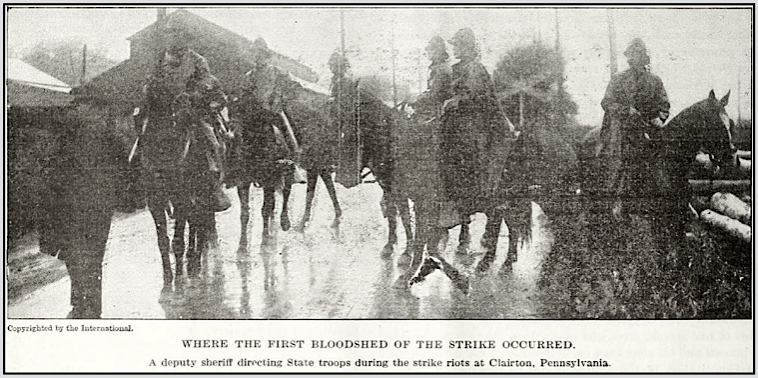
 ———-
———-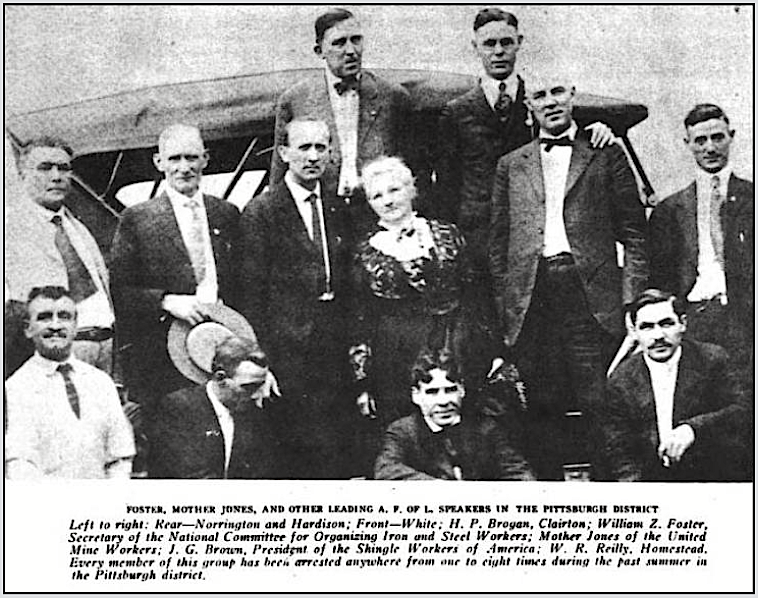
 ———-
———-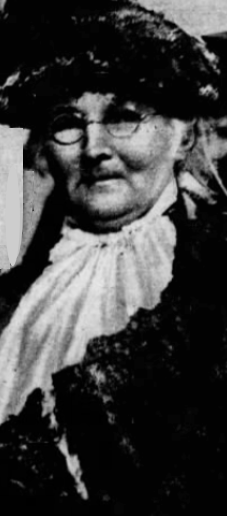

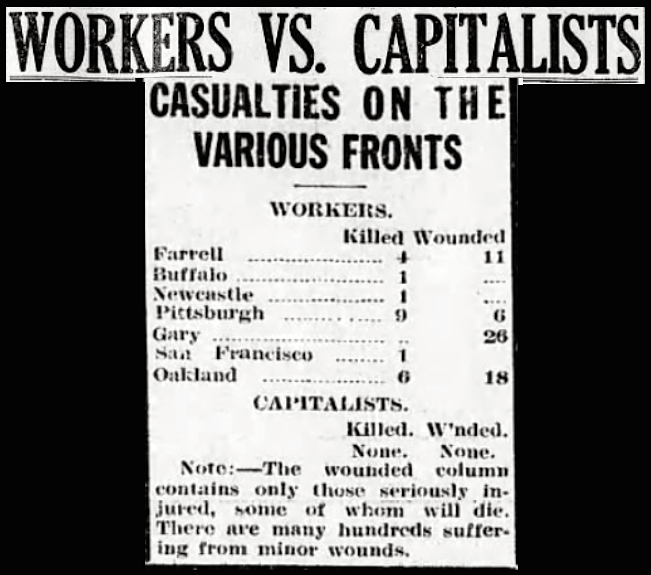 —–
—–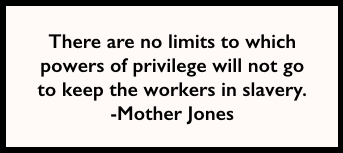 ———-
———-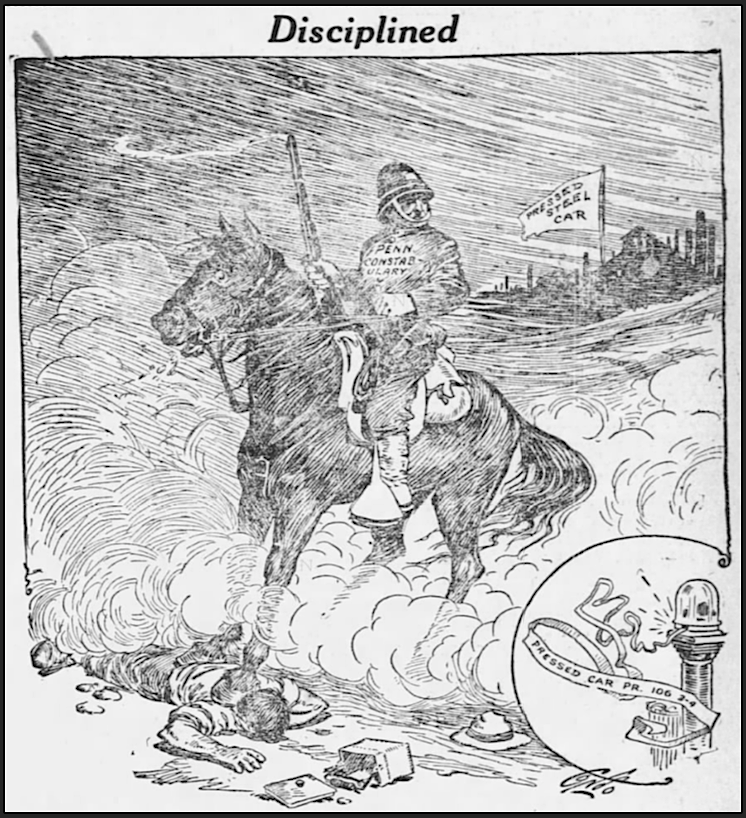 —–
—– ———-
———-

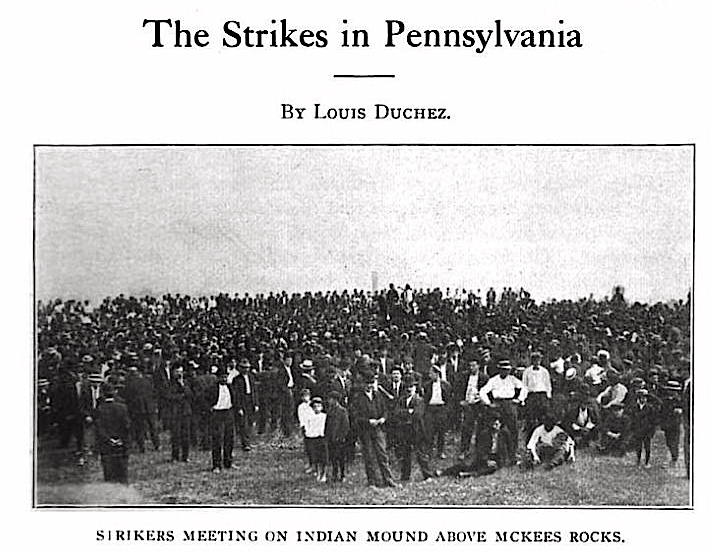 —–
—–